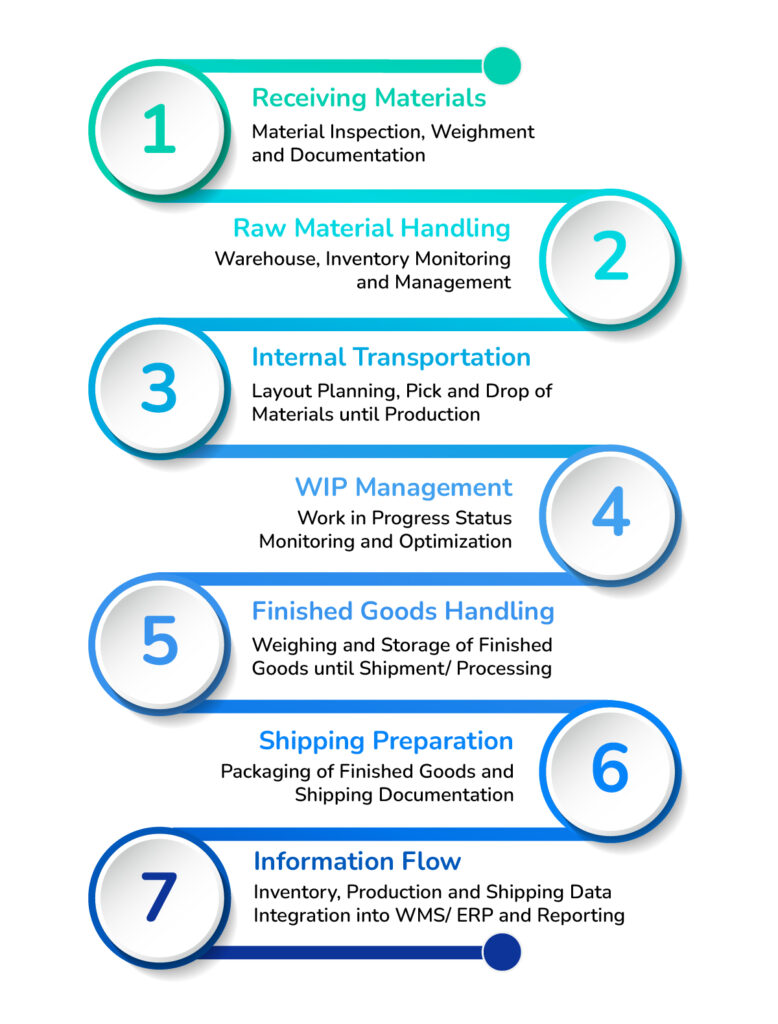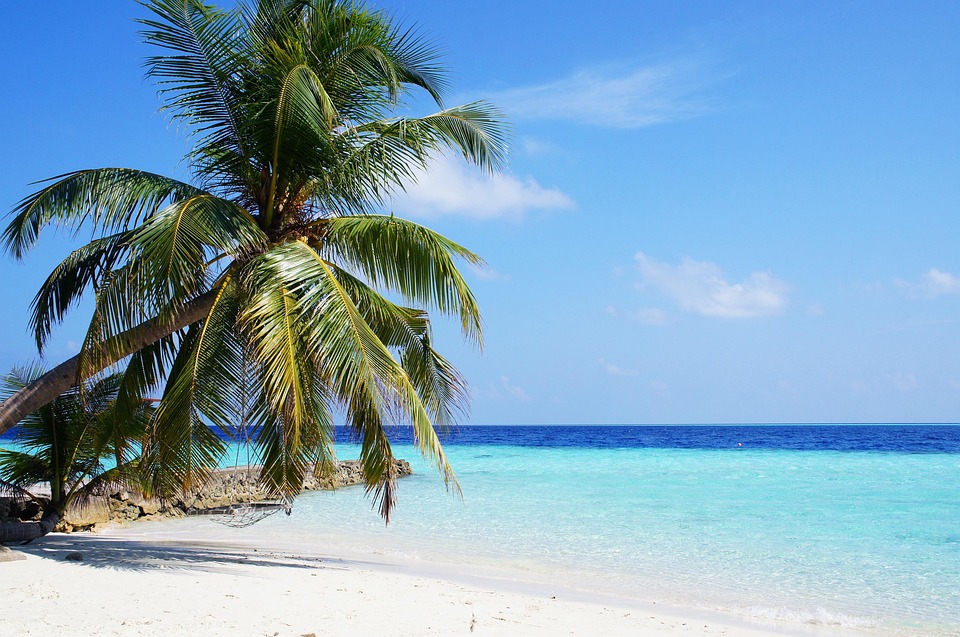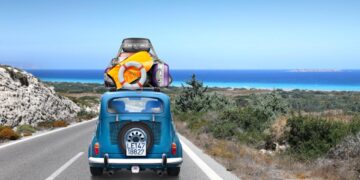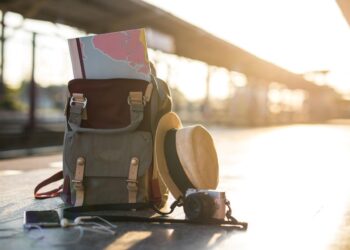The yearning for adventure and the pull of the world’s most spectacular destinations are powerful forces. Yet, for many seasoned travelers, the reality of visiting these iconic places during their peak season—school holidays, summer breaks, or major public holidays—is often a profound disappointment. A dream trip can quickly devolve into a nightmare of endless queues, skyrocketing prices, and a pervasive sense of being shuffled along by a tidal wave of humanity. This congestion not only diminishes the aesthetic pleasure of a destination but fundamentally undercuts the value of your vacation investment.
This definitive, in-depth guide is engineered for the smart, profit-conscious traveler who seeks serenity, authenticity, and maximum return on experience. We will dissect and conquer the phenomenon of peak season overcrowding, providing you with over 2000 words of actionable, expert-level strategies. By shifting your approach from merely visiting a destination to strategically navigating it, you will unlock the hidden, tranquil side of popular spots, guaranteeing a journey defined by peaceful exploration, not frustrating bottlenecks. Our focus is on meticulous planning, behavioral counter-programming, and leveraging digital intelligence to secure a superior, crowd-free travel experience every single time.
Phase I: The Foundational Pillars of Strategic Travel Planning
Successful crowd avoidance is not accidental; it is a calculated result of making three fundamental, early decisions about your trip. These initial choices will impact 80% of your on-the-ground experience and cost.
A. The Paramount Rule: Embracing the Shoulder Season
The most effective, universally applicable tactic is choosing the right time to travel. Peak season generally includes the major summer months (June to August) and key holiday periods (Christmas, Easter). The “Shoulder Season” acts as the golden compromise.
The strategic windows for the Northern Hemisphere are:
A. Late Spring (Mid-April to Early June): The weather is typically warm and sunny, flowers are in bloom, but the major school breaks have not yet begun. Accommodation and airfare prices are moderate. B. Early Autumn (September to October): The summer heat has subsided, leaving pleasant, clear days. Most families have returned home, drastically reducing crowds. Many destinations, particularly wine regions and national parks, are at their most beautiful. C. The Deep Off-Season (January to March, excluding holidays): This period offers the absolute lowest prices and minimal crowds, though it comes with colder weather and potentially reduced opening hours for some attractions. This is ideal for city breaks focused on indoor museums or culinary experiences.
The Economic Advantage: Traveling during the shoulder season directly enhances your AdSense value. Lower accommodation and flight costs free up a larger portion of the average traveler’s budget, making them more receptive to clicking on higher-value advertisements related to luxury experiences, gear, or next-level bookings they can now afford.
B. The Flexibility Mandate: Why Mid-Week is the Key
Tourist activity peaks not only seasonally but weekly. The standard 9-to-5 worker schedule dictates heavy travel on weekends. By simply shifting your arrival and departure days, you gain significant leverage.
A. Flights: The cheapest and least crowded days to fly are almost universally Tuesdays and Wednesdays. Avoid flying on Fridays and Sundays, which are peak congestion and pricing days for both business and leisure travelers. B. Accommodation: Booking a stay that starts on a Monday or Tuesday and ends on a Friday can often result in lower nightly rates, as hotels desperately try to fill the rooms that weekend travelers ignore. C. On-Site Visits: Plan your visits to major, non-museum attractions (e.g., historical sites, parks, famous city squares) for Tuesday, Wednesday, or Thursday. Mondays can often be crowded due to weekend travelers extending their trip, while Fridays mark the start of the next wave.
C. The Inverse Timing Tactic: Early Bird Catches the Empty Space
In peak season, the masses follow a predictable daily schedule. By consciously counter-programming your day, you move against the flow of people.
A. Attack at Dawn: Be at major landmarks 15 minutes before the opening time. The first hour of operation is frequently the quietest and provides the best natural light for photography. For example, visiting the Louvre immediately at 9:00 AM will provide a better experience than arriving at 11:00 AM. B. The Twilight Hour: Many popular attractions, especially public squares, national parks, and city centers, are wonderfully quiet an hour before sunset and after dark. The lighting is dramatic, and the day-trippers have departed. C. Eat on the Fringe: Avoid the standard lunch window (1:00 PM to 2:30 PM) and dinner rush (7:30 PM to 9:00 PM). Schedule a leisurely brunch at 10:30 AM and an early, quiet dinner at 6:00 PM, or embrace the late European style with a dinner reservation after 9:30 PM.
Phase II: Mastering Logistics and Itinerary Flow

Once the foundational timing is set, the next level of crowd avoidance focuses on meticulous, real-time logistics and the intelligent use of technology.
D. The Non-Negotiable Power of Pre-Booking
In peak season, the line for a ticket is often significantly longer than the line for entry. Eliminating the ticket line is paramount.
A. Skip-the-Line Priority: For every major, ticketed attraction—museums, historical sites, cathedrals—purchase the official “skip-the-line” or timed-entry ticket directly from the venue’s official website, not a third-party reseller. This often comes with a specific entry time, forcing you to adhere to an advantageous schedule. B. All-Inclusive Passes Caution: While city passes (like the Paris Pass or Rome Pass) can save money, they can be counter-productive for crowd avoidance. They encourage mass, rapid sightseeing, forcing you to visit sites at the same time as every other pass holder. Use them only if you calculate they save you substantial money on your chosen, pre-timed activities. C. Restaurant Reservations: For any sought-after dining experience, book weeks in advance. During peak season, walk-in availability is often zero, forcing you to settle for mediocre, overcrowded tourist traps.
E. Leveraging Digital Intelligence (The Modern Traveler’s Toolkit)
Modern technology provides dynamic solutions that traditional guidebooks cannot. Use these tools to make real-time, crowd-avoiding decisions.
A. Google Maps “Popular Times” Feature: This is your most valuable asset. Search for any location (museum, restaurant, transit station, park) on Google Maps and scroll down to the “Popular times” chart. This data, often updated in real-time, shows you the busiest hour of the day and the busiest day of the week. Adjust your plans instantly to arrive during the dips. B. Live Webcams: For globally famous public spaces (e.g., Times Square, Trevi Fountain, Shibuya Crossing), check a live webcam feed moments before you leave your hotel. If the density is overwhelming, pivot to your backup plan. C. Crowd-Sourcing Apps: Specialized apps and websites for theme parks and major destinations (e.g., Disney World, major festival venues) offer dedicated crowd calendars and real-time wait times. Always consult these for complex travel scenarios.
F. Strategic Accommodation Placement (The 15-Minute Rule)
Where you sleep dictates your daily movement flow. Staying directly in the most famous tourist hub (e.g., near the Eiffel Tower, next to the Colosseum) is highly convenient but guarantees high noise levels, inflated prices, and daily congestion.
A. The Suburb-Edge Strategy: Choose a well-connected, charming residential neighborhood that is 15 minutes by metro/bus from the main tourist area. These outer rings are often more affordable, are significantly quieter, and offer a more authentic selection of local shops, bakeries, and restaurants. B. The Transit Focus: Prioritize properties near a major transit hub (a central metro or train station) rather than properties near the main attraction itself. Efficient public transit is the true key to moving quickly and quietly throughout a city. C. Alternative Accommodation Types: Look for small, family-run guesthouses (pensions, riad, casa particular). They have far fewer guests than large hotels, offering a more tranquil and personalized environment.
Phase III: Advanced Counter-Programming for Authentic Discovery
The final, and most rewarding, set of tactics involves a complete mindset shift: deliberately looking beyond the obvious and embracing the unexpected.
G. The “B-List” Itinerary and Flexibility Quotient
A flawless travel plan includes built-in contingency. If your primary goal is unexpectedly overwhelmed with tourists, you must be ready to pivot immediately.
A. Develop a Daily Backup Plan: For every single day of your trip, identify a “Plan B” or “B-List” activity that is less famous, slightly off-center, or focuses on a niche interest (e.g., a specific architectural movement, a lesser-known local park, a neighborhood museum). B. Embrace Spontaneity: If you arrive at the famous museum and the line is unacceptable, don’t waste time waiting; use your B-List and go to the quieter spot. This willingness to deviate is the hallmark of a stress-free traveler. C. Avoid Tourist Trap Shopping: Instead of shopping on the main avenues filled with souvenir shops, look for local markets, artisanal workshops, or unique neighborhood boutiques. These offer authentic, high-quality goods and are frequented by locals, not crowds.
H. Nature, Niche, and Unconventional Attractions
Crowds coagulate around a few high-profile landmarks. Disperse your energy toward inherently less-crowded locales.
A. Focus on Green Spaces: Urban parks, botanical gardens, and local hiking trails are inherently large and disperse people effectively. Spending a morning in a city’s central park (e.g., Central Park, Hyde Park) is often a profoundly quiet and restorative experience, even during peak season. B. Niche Museums and Galleries: Bypass the globally famous, high-volume museums and seek out smaller, hyper-focused cultural institutions. Most cities have excellent museums dedicated to local history, specific arts (e.g., textile, ceramics), or individual famous figures. These often provide a deeper, more intimate cultural insight without the crowds. C. Architectural Exploration: Focus on walking tours centered around a specific neighborhood or architectural style. This allows you to sightsee the beauty of the city structure without needing to enter a single crowded, ticketed attraction.
I. Transportation: Avoiding the Congestion Headache
Movement between destinations is a major stress point in peak season. Strategic transit choices can preserve your peace of mind.
A. Non-Central Rail Stations: When traveling between cities, use the lesser-known, secondary rail stations if available. These often have lower passenger volumes than the main central hub, leading to a calmer boarding process. B. Off-Hour Ground Travel: When taking a train or bus, book a departure time between the morning and evening rush hours (e.g., a 10:30 AM or 1:30 PM departure). The vehicles will be less crowded, and the roads leading to the stations will be clearer. C. Private vs. Public: If your budget allows, consider pre-booking a private shuttle or shared service from the airport or train station to your accommodation. This avoids the chaotic, crowded scramble for taxis or airport trains.
J. The Mindset of the Tranquil Traveler

Ultimately, the best defense against peak season crowds is an inner one. Cultivating the right perspective ensures your happiness is not dependent on external circumstances.
A. Patience is a Virtue, Not a Weakness: Accept that you will encounter lines, delays, and crowds. View unexpected waiting time as an opportunity to observe, read a book, or simply practice mindfulness, rather than a cause for frustration. B. The Value of Observation: Turn the crowd itself into a point of interest. Observe the diversity, the communication, and the energy of the people around you. This reframes the crowd from an obstacle to a fascinating element of the human experience. C. Prioritize Experiences Over Checklists: Resist the urge to visit 10 sites in one day just to “tick the box.” Instead, choose two or three major activities, schedule them perfectly using the above tactics, and enjoy them thoroughly. Quality trumps quantity, especially in a crowded environment.
Conclusion
Traveling during peak season is an inevitability for many, whether due to work schedules, school calendars, or personal preference. However, being a victim of the crowds is a choice. By meticulously applying the strategic layers detailed in this comprehensive guide—from the foundational timing of the shoulder season to the dynamic, real-time adjustments using digital tools—you can transform your journey. You are no longer just a tourist following the herd; you are a strategic explorer, expertly navigating the world’s beauty on your own terms. Your reward will be higher-quality photographs, lower blood pressure, and a profound, authentic connection with the destinations you visit, leading to a truly priceless travel experience.







